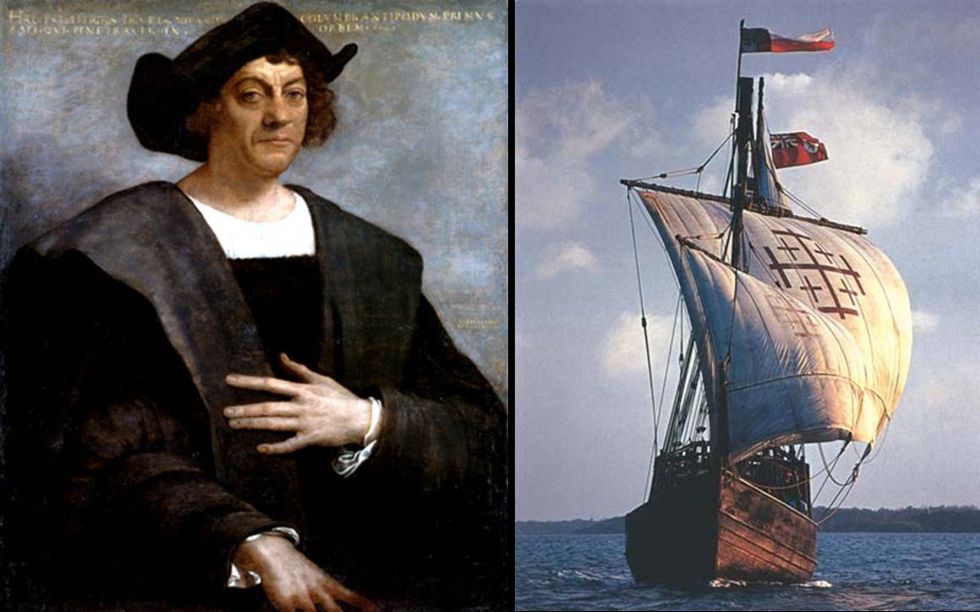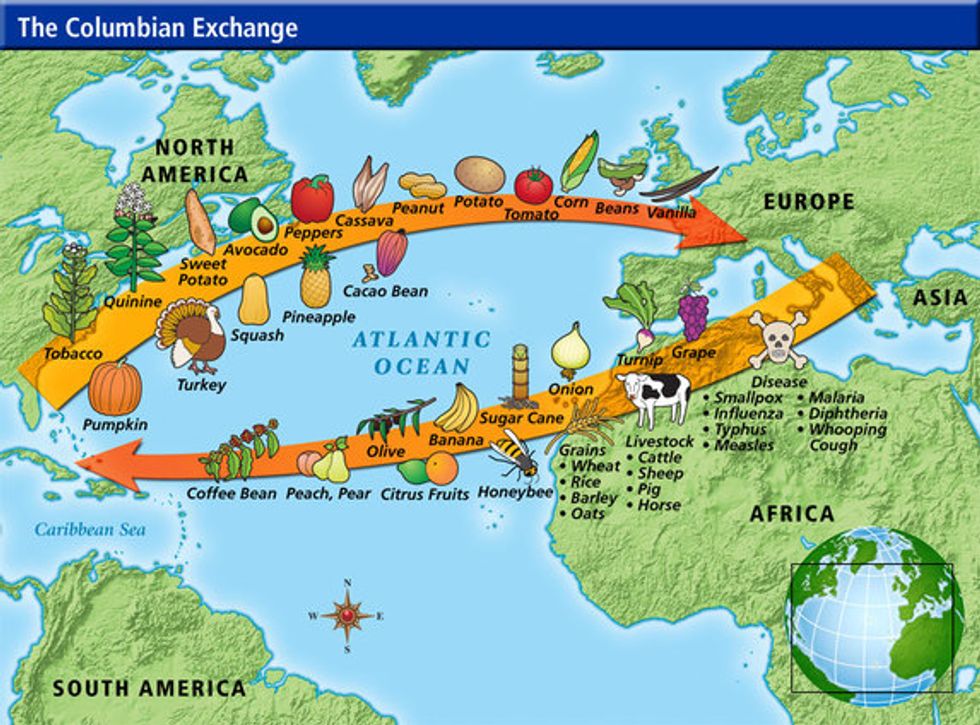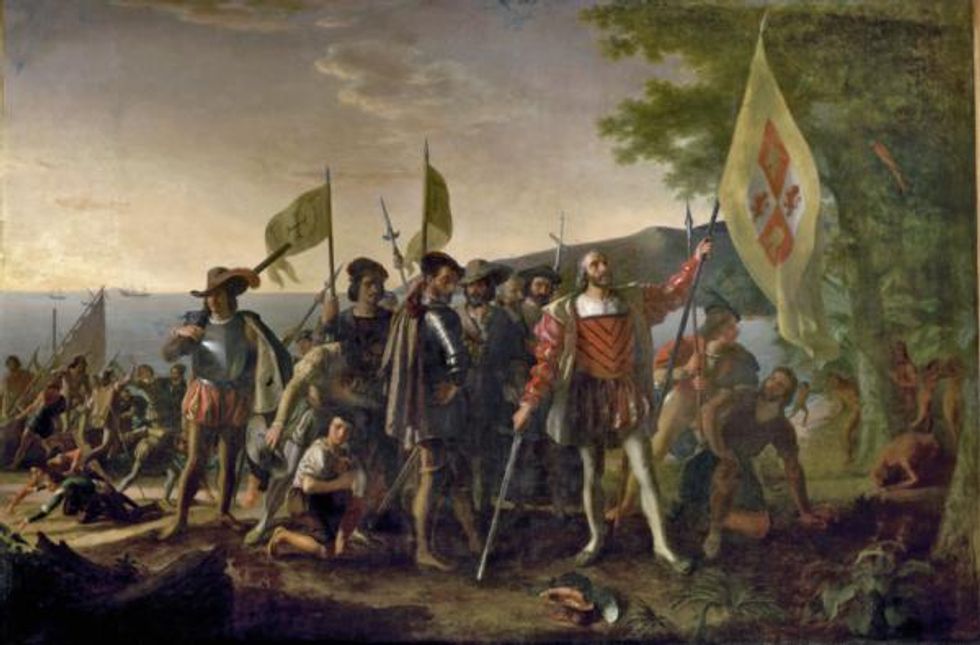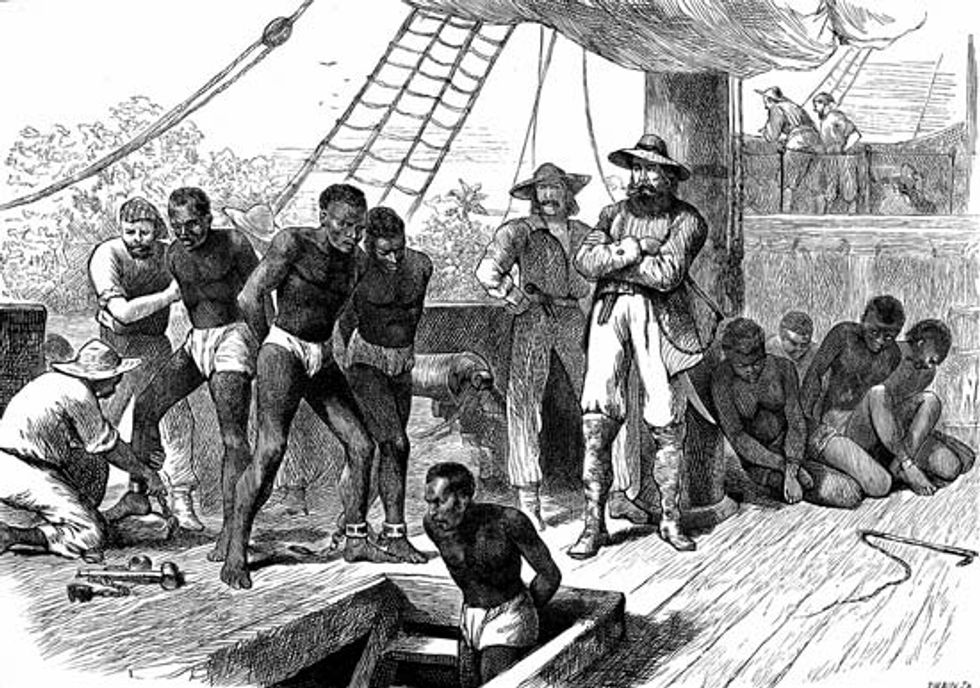After Christopher Columbus reached North America in 1492, by way of sailing east on the Atlantic Ocean in search of Asia, he stumbled across “primitive” land and discovered North America. After years of interacting with and analyzing the indigenous people of North America, Columbus set up the Columbian Exchange, the most innovative steps towards colonizing North America.
The economic development of mercantilism in conjunction with the Columbian Exchange was the greatest impact of the Atlantic System from 1550 to 1800. This encounter spread culture, disease, food, and livestock across North America, Europe, and Africa, ultimately making the motherland richer and the “hostage lands” poorer.
In its earliest form, premature contact between the Native Americans and the European colonists were cordial. The mutual exchange of tangible and intangible goods, such as plants, animals, and disease, spread throughout the New World in rapid amounts.
The Great Biological Exchange caused Europeans to receive food and furs from the Natives, and in turn, the Natives received iron, tools, cloth, and guns from the Europeans. This trading system allowed European explorers and conquistadors set up permanent estates, housing, and plantations on new soil. The Natives were taught to use the iron tools they crafted in attempts to build plantations, colonies, and establishments in their primitive and virgin land.
The relationship between Columbus’ Spanish explorers and the natives seemed mutualistic at first: the Natives gradually welcome the “fair-skinned gods” into their lands and the Spanish took note of the Natives’ distinct language and culture. However, the Europeans began to disregard the passive style of invasion they were practicing and began asserting physically, technical, and mental dominance over the Natives.
The combination of Native genocide and disease brought upon by European exploration cause a 90% decrease in the population by the Nineteenth century. Europe introduced diseases such as bubonic plague, chickenpox, cholera, the common cold, diphtheria, influenza, malaria, measles, scarlet fever, multiple sexually transmitted diseases, typhoid, typhus, tuberculosis, and pertussis to the Americas and the Europeans brought syphilis from the Americas back to Europe.
The Atlantic Ocean’s “middle passage” made it possible for Columbus and other European conquerors to incorporate Africa’s resources in the Columbian Exchange as well. Just like they did with the Natives, the Europeans traded manufactured goods, rum, and textiles with Africa in exchange for unfree laborers and indentured servants.
Once the Europeans tapped into slave markets from both Africa and North America, they were able to combine their workers and assemble them into plantations, expanding upon the territories and settling New England. Nations such as Portugal, Dutch, Ireland, Germany, and Italy took African and Caribbean slaves into the Americas for colonial purposes and by the seventeenth century, there were approximately seven million African slaves and one and a half million European slaves in North America.
Colonizers believed African slaves were better than Native American and Caribbean slaves because they were “immune to most diseases” which was, in theory, supposed to make them stronger and more valuable. European colonists began producing sugar, tobacco, and cotton for the motherland, bringing in even more wealth than they did from exploiting Native American labor.
The unfree labor of African casualties became a permanent and hereditary condition, manifesting itself as American slavery two centuries later. Africa soon became the “Gold Coast” and the “Slave Coast”, helping the Americas develop at speedy rates.
European explorers quickly developed mercantilism, an economic policy that supported the idea that the strength of a nation is based on the amount of gold and silver it has; also, that the country needs a favorable balance of trade and that the colonies exist for the good of the mother country as a source of raw materials and a market for manufactured goods.
By means of mercantilism, Spain set the precedence of managing and maintaining colonies in the New World, influencing the likes of Britain, France, Portugal, Russia, and others by the eighteenth century. The Spanish, French, and British were amongst the first colonists to begin harvesting sugarcane in the colonies, allowing them to exploit their colonies in order to increase revenue for their respective nations.
Mercantilism was the European blueprint to colonizing North America, as its parasitic nature only brought positive reinforcement for them, and negative repercussions for the Natives and the colonists.
The Columbian Exchange bridged the gap between simple civilizations such as early Native America and Africa, and a more complex collection of civilizations such as Europe. The integral part of setting up a stable foundation for living in America was the invention of a supervised trade system that was both lucrative and convenient for the Catholic motherland.
Columbus’ use of triangular trade, exploitation of resourceful colonies, and dependence on unfree labor allowed him to create a global market that would take the globe by storm. Columbus catalyzed a migration and influx of European colonists to America by mastering the art of trade, starting a new chapter in an old book of Western history.



















